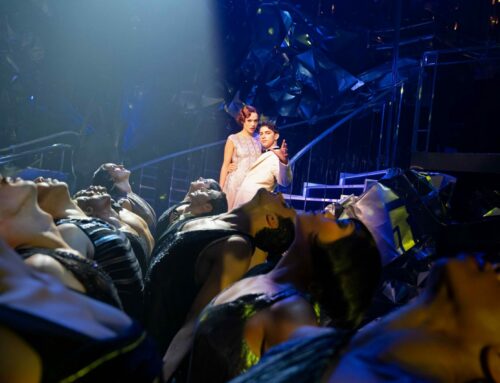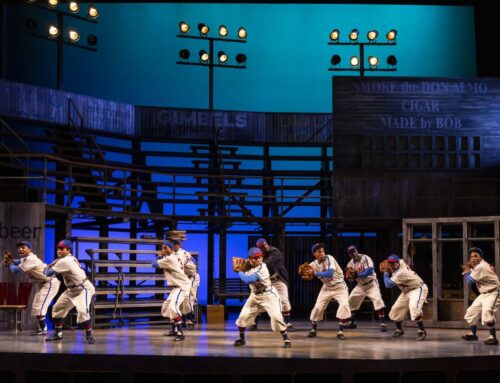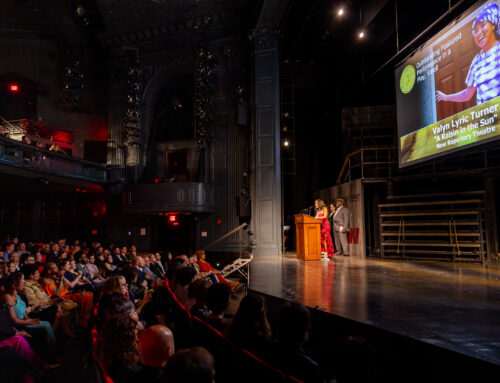SCHOOL GIRLS; Or, The African mean Girls Play by Jocelyn Bioh and directed by Summer L. Williams is now on stage and DO check this one out at SpeakEasy Stage. In their hands, this material about queen bees, their followers, and beauty standards is sharp and funny, with a denouement that stings us awake as the curtain falls.
Bioh, the daughter of parents who emigrated from Ghana, was inspired to write her play after hearing the true story of a bi-racial woman born in America, who became “Miss Ghana.” The implication that “colorism” affected pageant officials’ judgement that a lighter-skinned beauty would have an edge in the “Miss Universe” pageant– set off a scandal.
Bioh’s play is set in a private girls school in Ghana, 1986, and the milieu is immediately familiar to any girl who’s ever been bullied by or blindly followed a mean teen beauty queen a la Tina Faye’s MEAN GIRLS. Here Paulina Sarpong seems set to be crowned “Miss Ghana,” until a new girl comes to town, the light-skinned Ericka Boafo who’s also beautiful–and rich–and steals the buzz. Ireon Roach wisely tempers Paulina’s hilarious bravado with touching vulnerability, while Victoria Byrd’s ease and upbeat attitude as Ericka, gets under Paulina’s skin.
The set is simple, the issues clear, the direction puts the emphasis on these young women as individuals, and the way each one reacts internally and dynamically in this competitive pressure cooker: the leader, the hungry one, the shy one, the giddy one, the smart one. Everyone of them is more than who she appears to be.
Turns out, skin is what it’s all about, and the way that surface is misleading. Paulina and Ericka–despite their appearances–both struggle, along with their classmates with issues of identity and self worth. Both are victimized by the impending pageant, which itself is embedded with inherited definitions of what constitutes beauty. These “mean” girls are ALL in the same boat, and the white patriarchy put them there.
Though Bioh’s play specifically focuses on the extent to which white culture via colonialism has penetrated African culture, it is also a microcosm of the pressure all women, especially young women, feel. Here we watch them as they pit themselves not only against each another, but against themselves, as they struggle to meet some external standard of beauty and inner worth.
The show is a wake-up call, alerting us to the conscious and unconscious biases that skew our perceptions and damage our psyches. It’s also a clarion call to the beauty of self-realization. See SCHOOL GIRLS; Or The African Mean Girls Play at SpeakEasy Stage through May 25!







Leave A Comment
You must be logged in to post a comment.